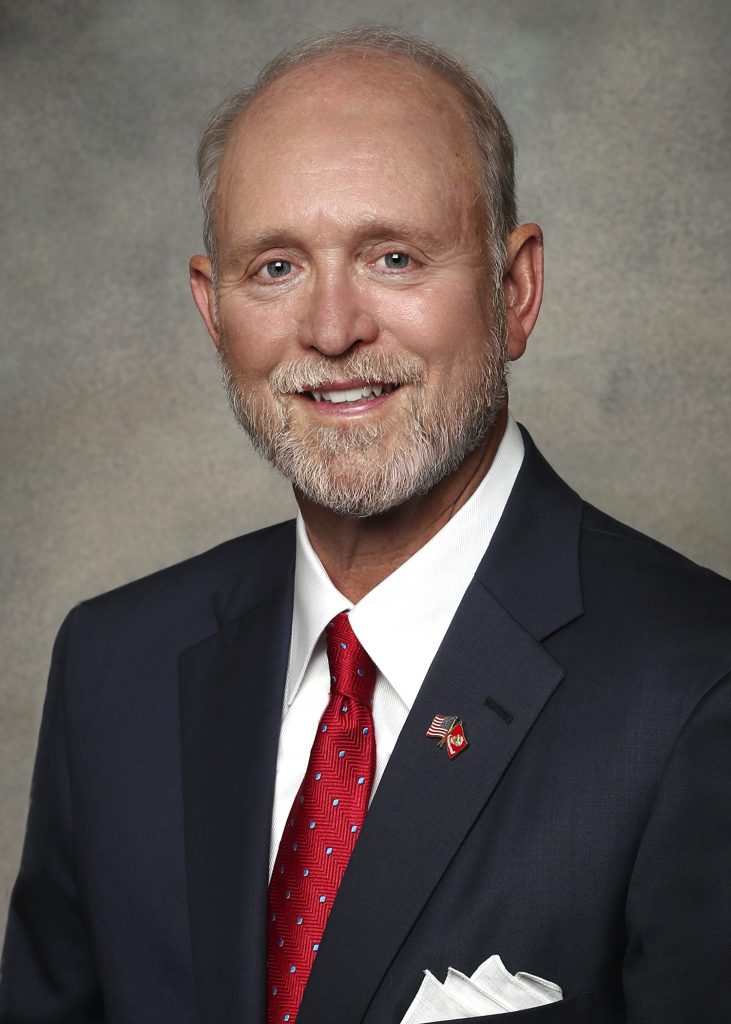A Message from VADA President and CEO Don Hall
September 2024
 This month, I spent a few days with my Southern retail automotive association executive peers in the foothills of the Appalachian Mountains of North Carolina. It’s an annual opportunity to gather and talk about our own work and issues on our members’ minds.
This month, I spent a few days with my Southern retail automotive association executive peers in the foothills of the Appalachian Mountains of North Carolina. It’s an annual opportunity to gather and talk about our own work and issues on our members’ minds.
This year, the biggest topic of discussion: State and federal regulators putting dealers in the bullseye over advertising practices.
And, to be frank: For good reason.
As dealers face margin pressure on new vehicles, they are increasingly forced to find creative ways to maintain profitability. While understandable, it’s important you know — and if you know, follow — state and federal advertising practices and fee disclosures.
It takes only a Google search to find examples of dealerships nationwide that have been targeted by regulators. The FTC, of course, has pushed the CARS Rule, implementation of which has been postponed pending a judicial review pushed by the National Automobile Dealers Association and our Texas counterparts. While we continue to believe the Rule adds time, costs, and complexity for car-buyers and makes it harder to conduct online sales, it’s proof positive that your livelihood is under the Feds’ microscope.
That delay aside, you are still bound to clear-cut rules in both the federal and state law: Dealers must disclose all fees upfront in advertising. Yet, many still hide additional costs until the final stages of the buying process. Some dealers do so intentionally. Others aren’t aware of the rules. There’s no excuse for either.
This practice of withholding fees is not only illegal but also undermines consumer trust.
Some dealerships argue they have no choice, citing the fact that the competition may be doing it or the razor-thin margins imposed by manufacturers — particularly with the rise of electric vehicles, which often come with no margin at all.
No matter the reason, the argument won’t stand up to scrutiny. The FTC and state attorneys general are increasingly holding dealerships accountable, and as pressure mounts, our businesses must adapt or face heavy fines — and worse, reputational damage.
Meanwhile, the biggest push for change isn’t coming from regulators – it’s the consumers. Consumers approach direct-to-consumer sellers like Tesla, Lucid, and Rivian with rose-colored glasses. These manufacturers are challenging traditional dealership models by eliminating haggling and having the appearance of standardized pricing. Try it yourself if you haven’t done so already: Visit any of these manufacturers’ websites, go through the sales process, and ask yourself if your online or in-person transaction process is as simple and clear.
If dealerships don’t adjust their practices soon, they risk falling behind — and the “so-called experts” will use it to validate the direct-sales model over the franchise system as the future of retail automotive sales and service.
The most successful dealerships are the ones that provide a great customer experience — part of which is price clarity at the get-go. And speaking of great service — you won’t have a chance to provide it if you don’t have a team who cares about doing so.
Beyond regulatory challenges, our industry also faces a recruitment crisis. Technicians, sure. But I’m talking about comptrollers, sales and F&I, too — dealers simply lag behind other industries in offering competitive benefits like health plans, paid time off, and even air-conditioned service department work environments. A study by Automotive News found work-life balance woes were the No. 1 reason for employee discontent among 1,000 people surveyed — a factor for 38 percent of those who'd found another job or considered leaving their current role. Increased workload without additional pay followed at 27 percent, and toxic workplace culture was third at 22 percent. Here are the full results (login required).
In an era where workers have more options, companies that fail to improve working conditions and benefits will continue to struggle with both recruitment and retention. If we do not adapt and evolve, government intervention and shifting worker and consumer preferences will force changes that could reshape the industry entirely.
The path forward requires more than just compliance — it demands a proactive approach to leadership and innovation. Those who rise to the occasion will set the standard for the future of automotive retail.

